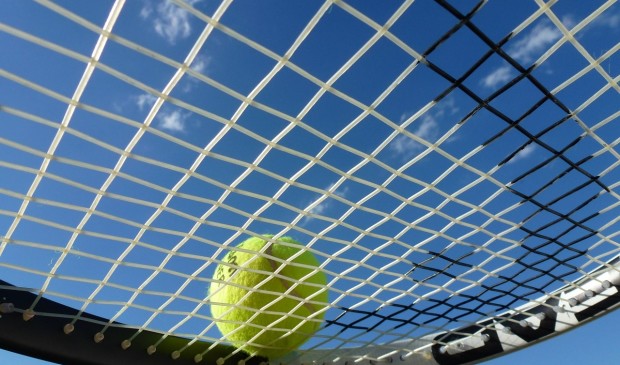Committee is unanimous: Caswell Center tennis players need parking spots
Friday, August 28, 2015 by
Jack Craver A vacant court isn’t all it takes to play tennis in Austin. It also takes a vacant parking spot.
To that end, City Council’s Open Space, Environment and Sustainability Committee voted unanimously Wednesday to recommend that 28 parking spaces be transferred to the Parks and Recreation Department and turned into dedicated parkland. Currently, those spaces – which are located in front of the Caswell Tennis Center on Shoal Creek Boulevard – are under control of the Austin Transportation Department. After the transfer, PARD would be authorized to reserve the spaces for Caswell facility users.
PARD will now present the recommendation to the Parks and Recreation Board for approval. It will then be subjected to consideration by the whole Council.
The committee decision came after testimony from a number of passionate tennis enthusiasts bemoaning the difficulty court users often encounter trying to park near the facility. Council Member Sheri Gallo, who is not a member of the committee, came to the meeting to lend her support to reserving parking spaces for tennis players.
“The problem that you have at a tennis facility is you have people showing up for a match at a certain time,” said Gallo. “And if they arrive and there’s no parking available, there’s very (few) other options in that area.”
PARD has tried in the past to reserve the parking spots for tennis players. However, in 2011, six years after putting up signs designating the spots for facility users – and threatening to tow non-users – the Transportation Department informed PARD that it did not have the right to deny general use of the spots, because they were located in a public right-of-way.
“We thought it was our land all along, so we were monitoring it and keeping it for patrons. Then we found out through our partnering department that we were using land that wasn’t ours,” said PARD Director Sara Hensley.
Lee Austin, an engineer with the Transportation Department, explained that the department was compelled to intervene.
“When we find signs up on the right-of-way that aren’t legal signs because they’re not explicitly allowed via ordinance … we’re kind of bound to get those taken down,” she said.
Ann Graham, a resident who showed up to support turning over the parking spaces to PARD, called the tennis center a “landmark” whose existence was threatened by nonplayers parking in the spaces next to the facility.
“Caswell Tennis Center needs to be saved, and it needs to grow and thrive and be supported economically through dedicated parkland to have a future,” she said.
In an attempt to keep nonplayers from hogging the spots, the Transportation Department in 2012 installed two-hour parking signs. But tennis center advocates said that didn’t solve the problem.
Those who use the facility pay fees to use the court. The fee is $2.75 per person during “nonprime” times and $4 during “prime” times. The fee offers players 90 minutes of court time for singles play and two hours for doubles.
“I think there’s an argument that if people are already paying, maybe the parking should be included,” said Council Member Don Zimmerman.
Zimmerman further wondered why there had been any issue with PARD reserving the spots for players, given that the resolution authorizing the tennis center’s construction in 1947 specifically referenced parking spots as part of the development.
“I don’t know what motivated this change in the first place,” he said. “It seems like it dates back to 1947.”
Hensley said that the Transportation Department had worked well with PARD to resolve the issue, but that it was up to Council to offer a more concrete solution that would set a precedent for similar cases in the future.
“I think this is a good solution,” Hensley said. “I think it works for the Transportation Department as well as us. I think, frankly, they would like to not deal with those spaces.”
Hensley added that her department will also discuss some type of “mitigation” plan with the Transportation Department.
“We could work with the Transportation Department for mitigation purposes, whether it is a fee-in-lieu-of or there’s many times when they have requested the use of parkland for mitigation purposes where they pay us money – we could then look at where that could be a swap,” she said.
You're a community leader
And we’re honored you look to us for serious, in-depth news. You know a strong community needs local and dedicated watchdog reporting. We’re here for you and that won’t change. Now will you take the powerful next step and support our nonprofit news organization?



